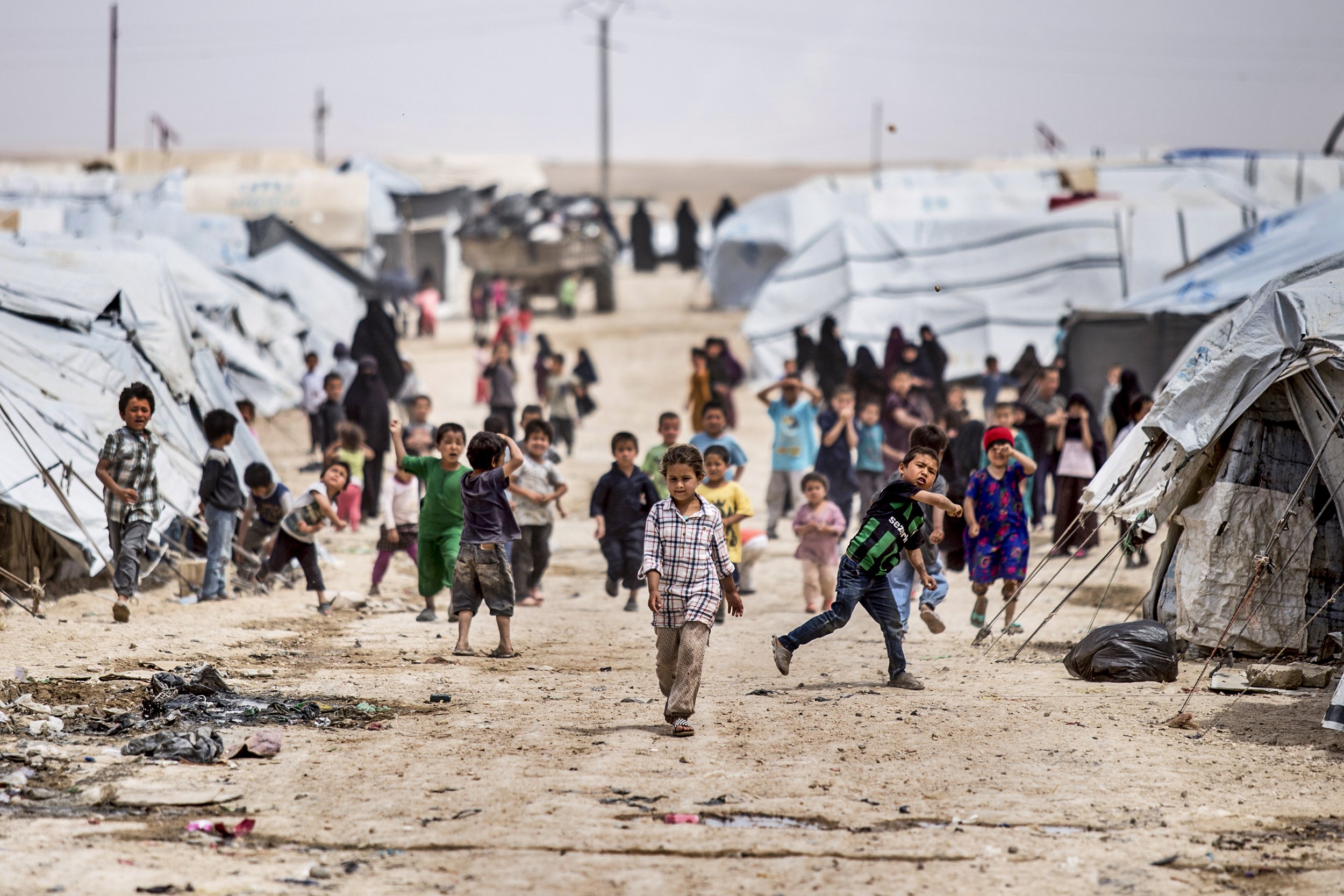Removing Shamima Begum’s British citizenship won’t change the fact she was radicalised in Britain.
Shamima Begum, the 23 year old who left Bethnal Green aged 15 to join ISIS, found out today that her appeal against the decision to strip her of her British citizenship has been unsuccessful. That means she will, for the forseeable, be left in a refugee camp in Northern Syria. As far as the law see’s it, she is no longer British, she is no longer Britain’s responsibility. For numerous reasons this feels not only like a lazy approach to dealing with radicalised nationals, but also a reckless one.
Firstly, it does nothing to change the past, and in that past Shamima Begum was a Bethnal Green girl, and it was there that she was radicalised. Here is a very simple truth: Happy people aren’t going to be radicalised. Content people aren’t going to be radicalised. People with a sense of identity and belonging aren’t going to be radicalised. The reality is something about British society made this 15 year old feel so isolated, so othered, so unwelcomed, that the ISIS propaganda videos seemed appealing.
Now look, I’m not saying I agree with her choices at all, but as a person of colour in Britain I can certainly understand how isolating it can be here. The Black Project actually only exists as a response to the way this country made me feel as though I didn’t belong. As though I wasn’t part of this community, only ever on the outside, an unwelcome visitor to their island that they wanted gone. And even if it wasn’t as extreme as that, it was constant reminders I don’t fit in here. “Where are you really from?” coming with the unsaid addendum of “because it’s not possible you’re from here.” I didn’t go and join a terrorist organisation, but I did build a space for myself to find a community I did belong to, to find support, to find people who had experiences like me, and who saw value in me. We made two very different choices, but the instigator was the same - Britain made us feel like it didn’t want us.
For Britain to now wipe it’s hands of her and absolve itself of any responsibilty for what happened is lazy, and does absolutely nothing to solve the issue of radicalisation. All it means is they don’t have to examine exactly what got her to that point. They don’t have to examine why she didn’t feel at home here, why she felt isolated and othered, why she felt so far from belonging. None of that is important anymore, she’s not their problem.
Except she is. Because as we speak, this country steps deeper and deeper into nationalism - not to be confused for patriotism. And nationalism means creating an environment here that is hostile towards anyone who doesn’t fit into the mould of what a Brit should be. And what happens then? What happens when you tell people over and over they don’t belong here? People who were born and raised in this country, who have never known anything else, and because of the melanin they were blessed with, or the God they pray to, they are not welcome here. They are a strain on the country. They are an unwanted invasion blighting the country. You isolate them, you other them, you force a social animal to go and find a place it does belong, and you position yourself in the role of threat. Put simply, you create the perfect pressure cooker for extremists to radicalise. Let us not forget, we might have technology and medicine and the ability for higher thought but humans are animals. We are pack animals. We do not do well on our own. We are tribal, and if isolated from one, we will seek out and find a new one that will welcome and protect us. That is how we survive. Shamima Begum is a perfect example to learn from, and it seems the country wants to do the exact opposite.
Al-Hawl Refugee Camp, Northern Syria. Photo Credit: Baderkhan Ahmad / AP file
It is reckless for another reason. The Northern Syrian camp that Shamima calls home is a tinderbox waiting for the spark that will send it up in flames. You have in that camp two core groups of people. First of all you have adults who were at some point in their lives radicalised, some who perhaps still are, meaning we already know they are people who are at risk of radicalisation. The second group are their children. They were born into ISIS or into the camps, and for pretty much all their lives all they have known is that no one values them. They have never known any home other than bombed out buildings or a canvas tent. They’ve never had a comfortable bed. They’ve never had a warm home. Many young children have died in the camp. As of September 2022 there were 57,000 people living there. Remember, we are pack animals, we will group together to survive, it is our base instinct. How long do you think it will take for radical or extreme ideas to spread through a place like that? There’s 10,000 foreign nationals in that camp (The remaining population being Syrian or Iraqi), perhaps they were children when they joined ISIS, perhaps they knew it was the biggest mistake of their lives but didn’t know how to undo it, how long in that camp before the anger and bitterness and resentment settles back in? By not wanting to claim any responsibilty for how people were radicalised in the first place, countries have ignored the problem at home and created the perfect environment for wide spread radicalisation in these camps.
The third issue, and it’s one I think is being overlooked in favour of a battle of morality from the right and the left, is what precedent does this set? Shamima was born and raised here, she is British. She made a beyond stupid decision at 15 years old and the state has stripped her of that citizenship. She is now stateless. The reason she lost that citizenship is because of her ethnic background. Not on the surface of course, on the surface it’s because she joined an extremist terrorist group. However, there are far right extremists who joined or formed terrorist groups who are in UK prisons right now, they did exactly the same thing as Shamima and they didn’t lose their citizenship. Had Shamima been Sharon and her ethnic background also been British, not just British by birth but by blood too, and had she done exactly the same thing but swap ISIS for EDL, she’d still have her citizenship. But because she is brown, because she is muslim, the EDL weren’t ever going to be the pack to take her in, so the group she ran to were outside of our shores. So what really is her crime? Is it joining a terrorist organisation, or is it not fitting the desired mould of British, and joining a terrorist organisation? And if that is the case, what does that mean for other British citizens who don’t fit the desired mould but commit crimes? Even with no crime committed we saw it with the Windrush Scandal, simple mistakes and misunderstandings were having people’s citizenship revoked left, right and center. How far from toeing the line would we have to go for us to lose our citizenship? A three strikes and you’re out rule? We are watching as policy passes that criminalises and penalises disruptive protest and strike action - how disruptive would be considered too disruptive when we protest injustice? Could that cost us citizenship?
I remember when Shamima Begum and her two friends fled to ISIS. I remember that at the time there was widespread empathy for them. It was instantly understood that these girls had been preyed upon, their insecurities manipulated, their naievity used to influence them. It was instantly understood that these girls were victims of an incredibly well oiled machine, in much the same way a sex trafficking or human trafficking ring operates. At what point did that change? Because Shamima’s role in the equation never changed, from the moment they went through passport control at the London airport, all three girls had left to join ISIS. That was a thing we as a society all knew right from the jump. So when did our role in the equation, the response, go from “vulnerable children preyed upon and manipulated” to “evil monster devoid of humanity, deserving of no empathy”?
Within 10 days of being in Syria, Shamima at the age of 15 was married to a man in his 20s. By age 19 she had birthed and watched 3 children die. She had been repeatedly abused by her husband. In 2019 when she was found and her interviews were circulating the news, we were reacting to first and foremost a person who was fresh out of the ISIS strong hold. She was still radicalised, and of course she was, she had just spent 4 years living in an extremist group. We were expecting remorse from a teenager who hadn’t yet been given the time to deprogram from the radical thought she had lived with for 4 years, and then were furious when we didn’t see it. Now, 4 years on, she’s 23 and we’re reacting to a woman who has been through such an intense amount of trauma in her short life, and we’re saying she’s not emotional enough, or she seems to smirk at uncomfortable questions and therefore shouldn’t be given any empathy. Whilst I understand both responses, they don’t contain any real understanding about the psychology of radicalisation, or the way people respond to extreme trauma, and I don’t think they’re particularly helpful in the conversation about de-radicalisation. And we know people can be de-radicalised. Hope not Hate, one of the biggest and most well respected advocacy groups in the country, who fight against fascism, racism, and extremism, their current Head of Intelligence is a former fascist. Matthew Collins was the South London organiser for the National Front, a member of Combat 18, and a volunteer at the head office of the BNP. He was deeply ingrained in multiple extremist organisations and now he spends his life trying to combat that very thing.
Why could that not also be Shamima Begum? She could become the countries greatest assett in tackling radicalisation, if people looked further than simply revenge fuelled punishment. Because that’s what this is - it’s not about protecting Britain. Leaving vulnerable people we know are at risk of radicalisation in a camp with no citizenship is playing with fire, it’s a breeding ground for extremism which actually only puts the West at more risk. In fact, 40% of the 900 Britons thought to have fought with Isis, had already returned to Britain by November 2019. (20% were thought to have died overseas, with the remainder still in the Middle East.) This 40% were immediately enrolled in deradicalisation programmes. Many other women who went to Syria to join ISIS, but who didn’t garner the same press attention are now back in the UK. Tareena Shakil, 32, was arrested in 2016 and sentenced to 6 and a half years in prison, meaning her sentence is coming to an end this year. Samia Hussein, who left aged 20 and married a man soon after landing, has been allowed back to the UK and faced no charges but remains under investigation. Shamima was five years younger, more impressionable, and made a child bride, but faces harsher punishment. Two other women, who haven’t been identified publicly, had their citizenship revoked and then restored by appeal. So no, this decision isn’t about protecting Britain, otherwise that 40% would still be in the Middle East, and the women named above would be treated the same as Shamima has been. It’s about Britain taking it’s anger out on her, and in doing so throwing away the chance to make her a serious ally in the fight against extremism. Because at the end of the day, who is better placed to speak against it than a person who lost everything because of it?



